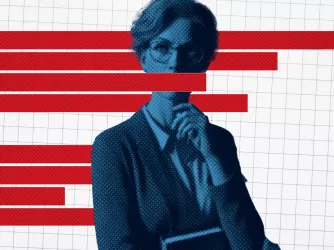Table of Contents
Cal Poly Establishes Neutral Ombuds as Successor to CARE-Net, Resolving Yearlong Controversy
Last spring, FIRE announced a victory for freedom of speech at California Polytechnic State University (Cal Poly) in San Luis Obispo when Cal Poly suspended an unconstitutional program targeting professors and students whose speech was "biased" or not "politically correct." The program even planned to let students report complaints anonymously, meaning that those deemed "politically incorrect" might never have known whom they had offended or why. Under pressure from FIRE, Cal Poly promised that any future CARE-Net program (short for Community Advocating REspect) "will not function to suppress controversial, offensive, or any other kind of protected speech." The successor to CARE-Net is now a neutral ombuds office that, according to campus paper the Mustang Daily, "will neither investigate nor exercise any authority."
In September 2009, the university's Inclusive Excellence Council reported on this development (PDF), mentioning FIRE's involvement:
CARE-net Update
This is morphing as we speak. The project was initially focused on the reporting of bias incidents, but—based on a preemptive move by both some members of campus and an outside organization that feared the program would potentially infringe upon free speech—this is moving instead towards an Ombuds service. This will be finalized and announced to the campus community soon. The intent is for the Ombuds to be open to any area of concern by a student, with the goals being to listen, to care, and to assist the student in identifying whatever options and support are available.
Here's the official campus announcement of the new program as of February 17, 2010:
Student Ombuds Services Established
The Office of Student Ombuds Services provides students with an informal, independent, impartial and confidential resource to assist in the resolution of university-related complaints or concerns. Ombuds staff members are committed to hearing about students' experiences, assisting them in understanding applicable university policies and procedures, and—as appropriate—helping them to informally resolve any university-related concerns. The staff adhere to the Code of Ethics and Standards of Practice of the International Ombuds Association. Associate Ombuds Patricia Ponce normally will be available to see students in the Student Ombuds Services office (Kennedy Library, room 113) daily between 10 a.m. and noon or by appointment. Contact Ponce at pponce@calpoly.edu or ext. 6-1380. A Web site with more information is under construction.
We will be looking carefully at the website once it is launched. If this office is essentially like the one on Cal Poly's sister campus in Pomona, it promises to be an excellent addition to the services available at Cal Poly. Here are some of the principles that the Pomona office follows:
The Ombuds shall be neutral in his/her activities, and shall not take sides in any conflict, dispute or issue. ... The Ombuds shall be a resource for informal dispute resolution only. The Ombuds shall not formally investigate, arbitrate, adjudicate or in any other way participate in any internal or external formal process or action. Use of the Ombuds shall be voluntary and not a required step in any grievance process or University policy.
I met with Ms. Ponce when I visited Cal Poly a few weeks ago. I informed her that several years ago, I interviewed and evaluated candidates for the University of Chicago's now 42-year-old, awkwardly named Office of the Student Ombudsperson and that I know from personal experience that such offices can be very successful. So long as Cal Poly sticks with a fully neutral mission, I wish much success to the Ombudses (yes, that is the plural form) at Cal Poly.
Recent Articles
FIRE’s award-winning Newsdesk covers the free speech news you need to stay informed.

LAWSUIT: Videographers sue to overturn National Parks Service arbitrary permit scheme

Supreme Court must halt unprecedented TikTok ban to allow review, FIRE argues in new brief to high court

FIRE to Congress: More work needed to protect free speech on college campuses
